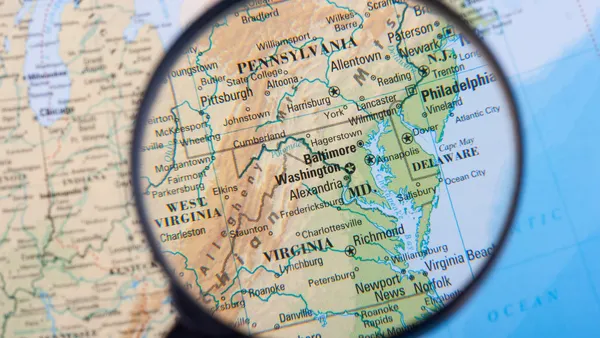State Street is depositing $100 million into minority depository institutions and community development financial institutions to increase their lending capacity to the undercapitalized communities they serve.
The program’s first beneficiaries are Columbia, South Carolina-based Optus Bank and Durham, North Carolina-based Mechanics & Farmers Bank, two of the nation’s oldest Black-owned banks. State Street announced the partnerships Thursday.
“We looked at leadership. We looked at impact. We looked at financials. We vetted [them] through our system for a number of factors, and they stood apart ... as ideal partners,” said State Street Chief Diversity Officer Paul Francisco. “We continue to talk and vet other partners, but we feel comfortable that the impact that these deposit dollars would have in their communities and to the strategy would be of value; and we are very comfortable with their strategy [and] with their leadership.”
MDIs and CDFIs like Optus and M&F play a key role by providing access to capital, loans, mortgages and banking services to people and businesses within communities of color.
“These are critical institutions that people trust, people value, and people go to for resources, and we wanted to be closer to that. We are not a retail bank, so we don't know directly what those needs are. Partnering with organizations like CDFIs and MDIs gets us closer to understanding how we might be able to positively impact the economic needs of those communities,” Francisco said.
“Ultimately, we know that these organizations are behind loans for housing, loans for building, for job creation, for small businesses. At the end of the day, the mission alignment, the direct impact to communities and being the reliable partners to people in those communities is what attracted us to these banks,” he said.
State Street’s deposit will allow M&F to “continue to support small businesses and consumers to reduce the overall wealth gap in North Carolina,” M&F CEO James Sills III said in a prepared statement.
“We appreciate the confidence State Street has placed in our ability to understand our customer base and offer financial services that build wealth in our communities,” Sills said.
The program builds upon State Street’s previous efforts to further racial equity, including a 10-point action plan released in 2020 focused on ending systemic racism. Among other things, the action plan includes improving Black and Latino employee and board representation, increasing spend with Black and Latino suppliers, and sharpening focus on Black and Latino talent development.
It also makes good on intentions State Street laid out following last year’s third-party civil rights audit, in which law firm Relman Colfax made recommendations on how the bank could better serve diverse communities – specifically on its recommendation to expand investments into BIPOC communities and companies.
”This is a part of that framework and and follow up to the civil rights audit recommendations to say, we are committed to this we believe in being able to impact communities and being able to do whatever we can to address some issues that are structurally present in certain communities,” Francisco told Banking Dive.













